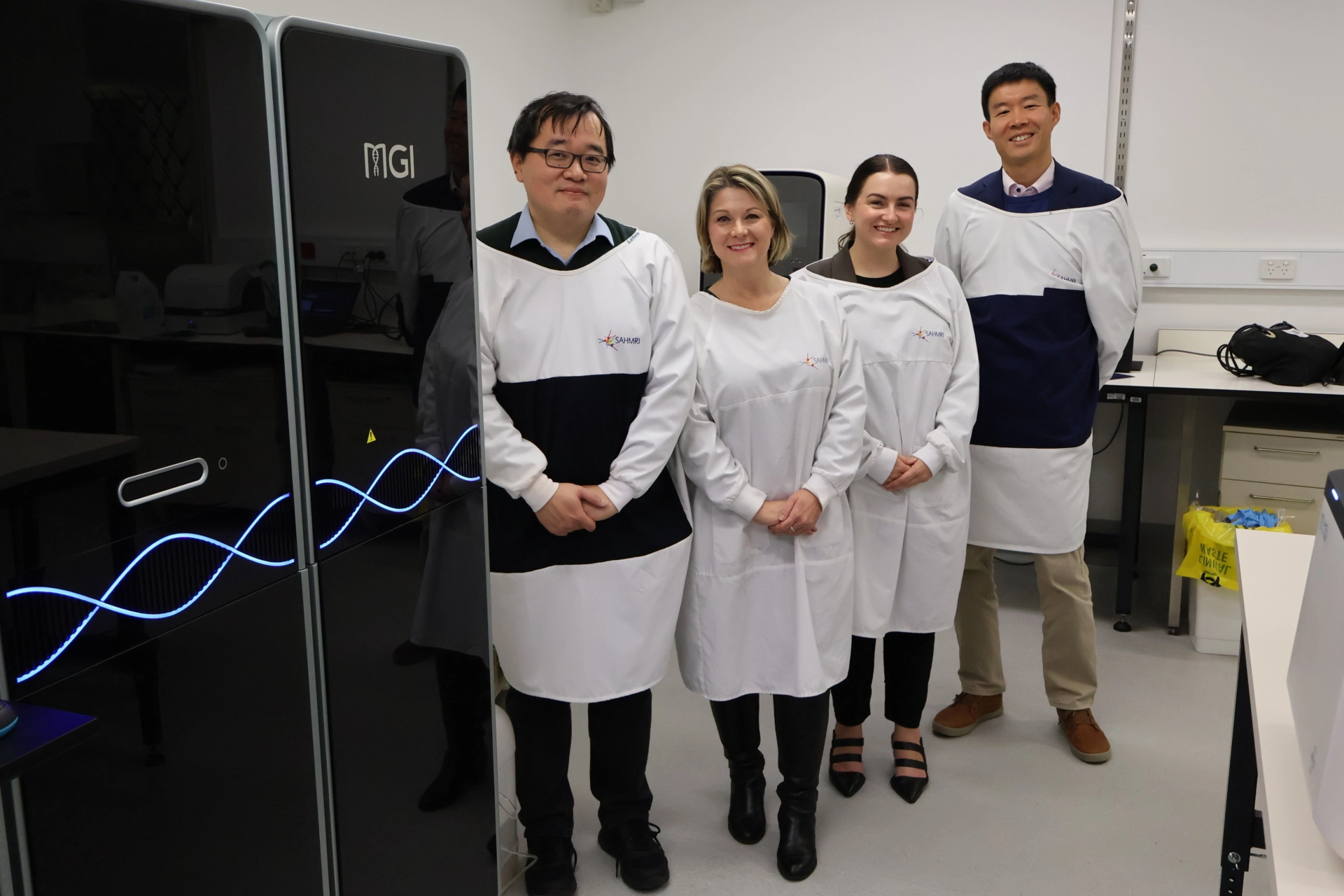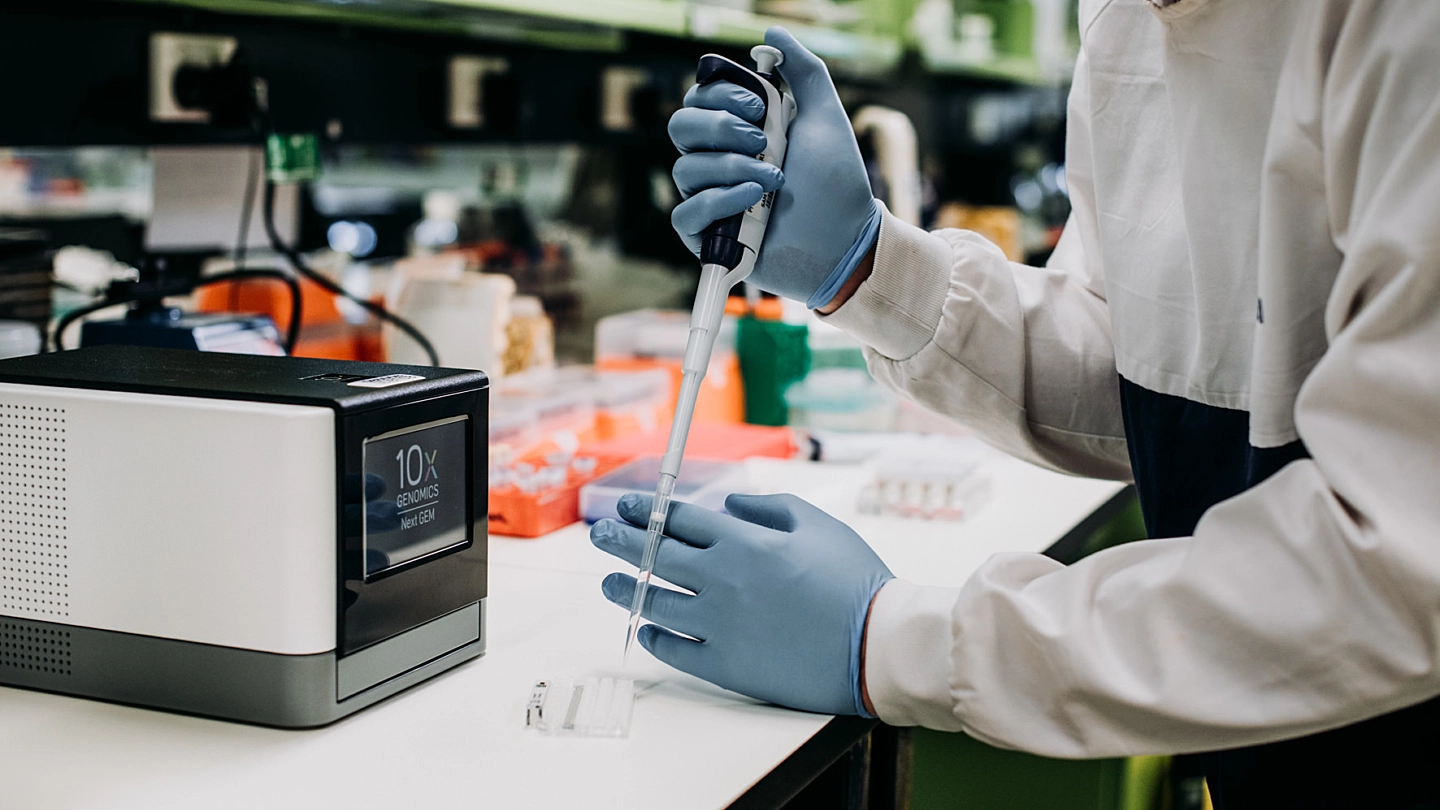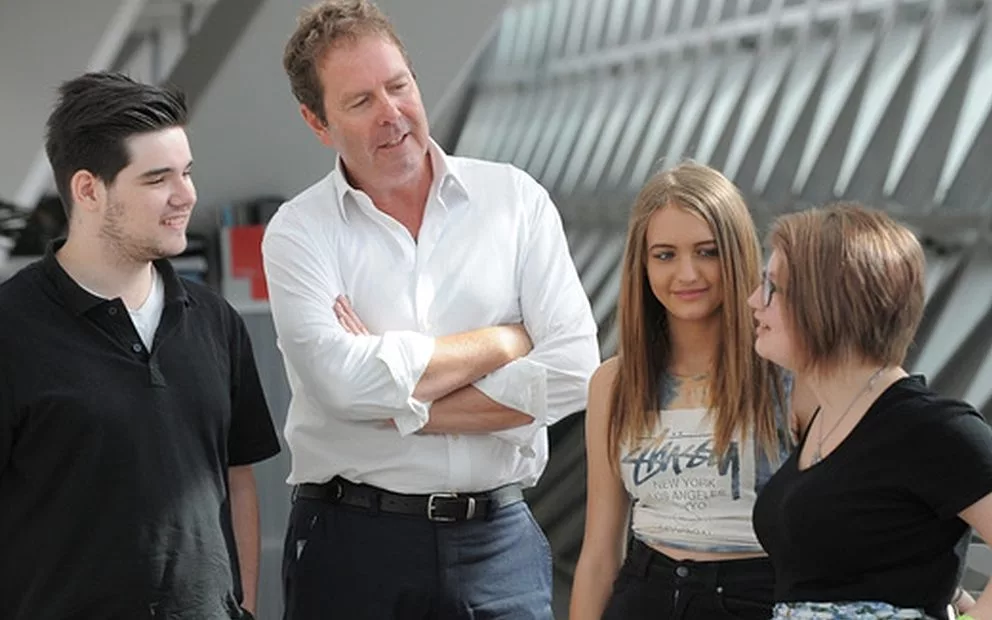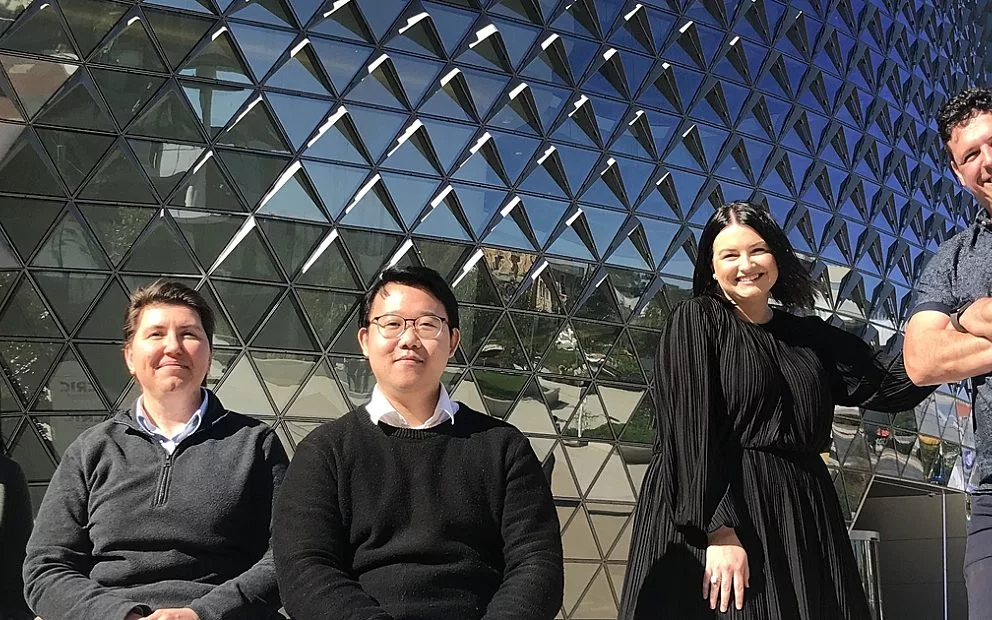Cancer research at SAHMRI has received a welcome boost with the appointment of a highly accomplished computational biologist as the new Ramsay Bioinformatics Fellow.
Dr Paul Wang’s exceptional skills in next-generation sequencing technology and high-level data analysis will uncover new insights in genomics that will significantly contribute to breakthroughs benefitting patients.
Having previously held postdoctoral positions at the Australian Cancer Research Foundation (ACRF), South Australian Cancer Facility, Centre for Cancer Biology and SA Pathology, Dr Wang says he’s eager to bring his experience to the role.
"I’m honoured to be appointed as the Ramsay Bioinformatics Fellow, and I am grateful for the opportunity to further my work in cancer research,” Dr Wang said.
As South Australia’s independent not-for-profit health and medical research institute, SAHMRI relies on the generosity of trusts, foundations, government bodies and philanthropists to help fund the lifesaving medical research vital to our community.
The appointment of Dr Wang as the Ramsay Bioinformatics Fellow has been made possible through the generous support of the James and Diana Ramsay Foundation.
“Their support is crucial in allowing bioinformaticians like me to contribute to innovative scientific discoveries,” Dr Wang said.
The foundation has significantly contributed to supporting SAHMRI to build its bioinformatics capability since 2015, including providing seed funding to establish the South Australian Genomics Centre (SAGC) in 2020. The SAGC builds on the already solid reputation of South Australian researchers in genomics and bioinformatics and has further increased partnerships in the field, including non-traditional collaborations that bring together researchers working in the plant and agriculture research fields with those working in biomedical research.
The vital Bioinformatics Fellowship position has established critical analysis pipelines for cancer research, resulting in numerous publications and successful grant outcomes by the leukaemia research groups.
“The strength of bioinformatics at SAHMRI has led to major new investments in single-cell and spatial transcriptomics, at the forefront of genomics, allowing single-cell detection and measurement of gene and protein expression,” Dr Wang said.
The James and Diana Ramsay Foundation’s early investment in SAHMRI’s bioinformatic capability has helped establish connections with more than 140 researchers, who have used SAGC services for more than 270 projects and contributed to 30 peer-reviewed publications. Included in this diverse list of research projects have been A/Prof Cedric Bardy’s vital work to understand drivers in Parkinson’s disease, A/Prof Erin Symonds’ work to develop non-invasive diagnostics for colon cancer and a collaboration with SA Water and SA Pathology to conduct waste-water surveillance around South Australia to detect COVID variants.
The foundation has been one of the most significant contributors to SAHMRI projects across its 10-year history, recently passing the milestone of awarding $20m in philanthropic grants. Since the partnership was established, $1.5m has been given to SAHMRI for various research areas.
Key projects have included multi-year funding to support ‘Resilient Futures’, a program that aimed to measure and then build resilience among 850 disadvantaged young people to improve their mental health. This was jointly funded by the foundation and the Wyatt Trust for the three-year individualised youth mentor program. The program won the national ‘Best Large Grant awarded by Philanthropy Australia’.
The program's success led to the development of the ‘Be Well Plan’, an evidence-based mental health promotion program and mobile app supporting personalised approaches to mental health.
Dr Wang's appointment exemplifies the exciting opportunities SAHMRI’s enduring partnership with the James and Diana Ramsay Foundation offers. One of the foundation’s directors, Tim Edwards, who has 32 years of experience as a medical practitioner, said the they are dedicated to supporting innovations to improve the health of our community.
“Innovation is at the heart of medical research. The great leaps forward have come mostly from patient scientific analysis leading to innovation rather than from light bulb discovery moments. Innovations such as the polio vaccination, the use of insulin to treat diabetes, and successful treatments of HIV / AIDS have all been possible through the innovation of health and medical research scientists,” Mr Edwards said.




